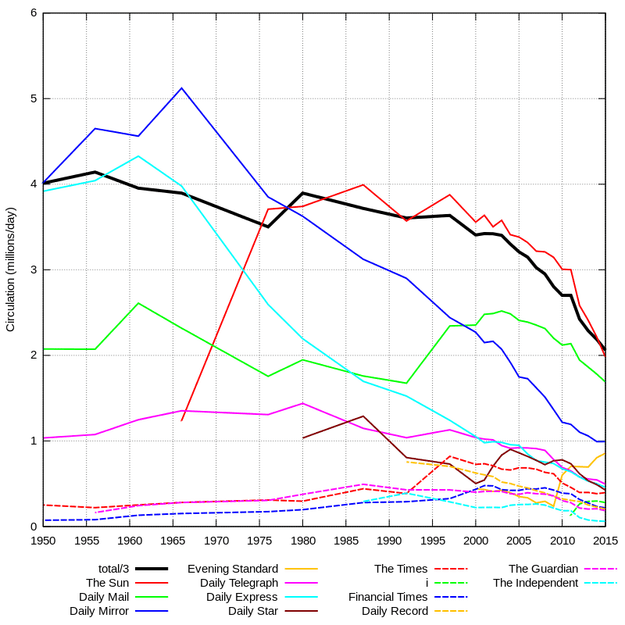Activism in Daily Life:
Casting Votes that Count
by Sean Gabb
[email protected]
Special to L. Neil Smith’s The Libertarian Enterprise
The more raddled and droopy my face grows, the more inclined I am to agree with a proposition put to me by various friends since before I needed to shave. This is that political activism is a waste of time. Oh, writing about politics—analysis, denunciation, a general flying of the ideological flag—that is probably time well-spent. I have always enjoyed it, and may have done no harm to the causes thereby supported. The waste of time is electoral politics and involvement in campaign groups. The first means joining political parties over which we have no control, and that are led by people whose behaviour—and increasingly whose speech—reveals them as our sworn enemies. The second means giving money to people who, with a few percentage wobbles either side, operate on the “Eighty-Twenty Principle.” 80p of every pound you hand over will be spent on whores and cocaine. Whatever remains that is not merely wasted will be spent on getting someone cheap to do the promised work.
This is not to say that we should withdraw from activism of any kind, or just look after the content and outreach of our blogs. The present order of things is rotten. It will eventually collapse under the weight of its own absurdity and moral corruption. If, in the meantime, it controls what Louis Althusser called the ideological state apparatus and the repressive state apparatus, and if it remains committed to using these to ward off anything approaching a frontal assault, there is much we can do both to bring on that final collapse and to ensure that we are well-placed to benefit from it. My proposal—and this is not at all original to me, and not even said by me for the first time—is that we should become activists in our daily life. Here is a brief listing of the things we can do that need cost us nothing financially and that cannot, unless pushed too far, get us into any sort of trouble
1. Give Preference to Our Own
One of the main benefits of self-employment is independence. When it comes to speaking your mind and living as you please, there is no exclusive buyer who can tell you what to do and what not to do. The disadvantage for many libertarians and conservatives is that we often find ourselves operating as atomised individuals in a market with high communication costs. Other groups—Jews, Moslems, Sikhs, some homosexuals, and so forth—reduce these costs by giving a settled preference to their own. I have been doing this for many years. If I need a builder or an accountant, for example, I do business with men who can do the job, and who share at least some of my opinions. I will not do business with anyone who says he believes in censorship or our extended managerial state.
This is not a principle that can be made universal. I have no choice but to buy diesel from some of the nastiest organisations on the planet. The Gabb Family buys much of its food from Sainsbury. I make these involvements as unprofitable as I can. I take advantage of every price reduction and every special offer. If I must provide information in exchange, I make sure the information is worthless in itself or contradictory at random. Where convenient, I give business to suppliers who share some of my opinions.
However, without being made universal, the principle is one that could be used to create networks of financial support to supplement any networks of ideological agreement. When my late friend Chris R. Tame lost his job at FOREST in 1995, he spent his last eleven years running down his assets. Had he lived, he would now be an embittered old man stuck in a bedsitting room. When Anjem Choudary comes out of prison, he will be immediately employed in some nice job within the Islamic Community. That is a contrast we could examine to our advantage.
2. Punish Hostile Businesses
Two years ago, I went to a small coffee shop in Deal. I found a leaflet on the table that this would be hosting a recital of “poetry” by someone I regarded as a nauseous Anglophobe and a parasite on the local taxpayers. I wrote a paragraph of denunciation on the back of the leaflet, and gave this to the waitress, telling her I was minded never to go there again. To my knowledge, the “poet” has not been invited back.
Some small businesses are run by cultural leftists—the days when leftism meant opposition to private business ended some time in the 1980s. Most are run by people who just want to make a living, and think a lack of overt opposition means that sucking up to the left is good for business. The former should be identified and avoided. The latter should be shown that leftism is not so good for business.
Many Jews have taken this approach about as far as it can go. The music critic Norman Lebrecht dislikes Herbert von Karajan. He dislikes him partly for artistic reasons, but mainly, it seems, because Karajan did nicely out of the Third Reich, and got off after the War without so much as a slapped wrist. There is nothing substantial he can do about the nine hundred recordings or the $500 million estate. But he does what he can. One day, he was in a bookshop where a Karajan recording was being played. A quiet word at the cash till, and the disk was changed. This may suggest that Jews are less powerful than they or their enemies like to think: thirty years after his death, Karajan remains a nice earner. But it does show that petty complaints can work at the point of delivery. Enough of them, all directed to similar ends, can help bring about subtle and meaningful changes in the climate of what is acceptable.
3. Do not Buy Newspapers
With no exceptions, the national newspapers in Britain are weapons of psychological warfare. Most of their content is triviality and fake news. Reading them with a critical eye is essential if we want to know what is happening—or just what is claimed about what is happening. Buying them is an act of trading with the enemy. Deal is full of old people. Every morning, I see armies of them walking home with their daily newspapers. Most of them see themselves as at least moderately conservative. So far as they fund the salaries of the newspaper writers, they are buying the rope with which they are being hanged.
Here, though, I am pushing at an open door. Have a look at this wonderful chart:

UK daily newspaper circulation, 1950 to 2015
Source:
Wikipedia
With the exception of those given out free on public transport, most newspapers have been in free fall since about 1995. Jobs are going. Salaries are being cut. Thousands of scummy journalism graduates are scrabbling for work. The smallest of the broadsheet newspapers, The Independent, has had to give up on paper and go entirely on-line. Every so often, we are told that readers have transferred their attention to the newspaper websites. More likely, they are just not bothering.
I am not saying that we should ignore the newspapers. They have their uses. But I do say we should stop giving their owners any money. You can find what you want by looking on their websites, or at repostings on Facebook, or by joining Robert Henderson’s e-mail distribution list. Just make sure not to click on any of the advertisements that finance the news websites.
Where social media platforms like Facebook and Twitter are concerned, again use them, but avoid adding to their profits. Do not buy anything advertised there. Give misleading personal information and change this at random.
4. Do not Pay for Intellectual Property
There are objections to the principle of intellectual property. These are presently irrelevant. What is relevant is that the companies that grow rich from intellectual property are part of The Enemy. When Nelson struck in Aboukir Bay, he was not striking at the principle of sailing ships, but denying control of the sea to the French. I buy most books and DVDs and CDs second-hand. If I must take my women to the cinema, I do so when there is a special offer. I know people who spend much of their lives downloading pirated soft copies. I would never advocate breaking the law. Even so, I can see their point. In general, some intellectual property is worth having. Its main beneficiaries should be kept from making a profit from its sale.
I could continue. I could, for example, discuss complaint letter strategies that raise costs for big companies, and that may dishearten their employees. I could discuss never paying taxes or utility bills until just before penalties are to be applied. But I have said enough for the moment. All I will add is that public behaviour of the sort discussed above should usually be avoided. This can be effective. In 2017, the supermarket chain Lidl removed the cross from its Eridanous range of Greek produce. It did this apparently in the hope that it might sell more humous to Moslems. After much outrage for the churches and threats of a boycott, the company apologised and promised to restore the cross. But this was a special case involving religion. If you take public exception to the storyline of a washing powder advertisement, you may get a visit from the police. Better to make a private choice the next time you go shopping.
Yes, the idea is to change our spending habits within reason, so that they reward our friends and punish our enemies. Done consistently, and on a large scale, this may enable change. It will probably do more than joining the Jacob Rees Mogg fan club.
Reprinted from Sean Gabb's website
Sean Gabb is the author of more than forty books and around a thousand essays and newspaper articles. He also appears on radio and television, and is a notable speaker at conferences and literary festivals in Britain, America, Europe and Asia. Under the name Richard Blake, he has written eight historical novels for Hodder & Stoughton. These have been translated into Spanish, Italian, Greek, Slovak, Hungarian, Chinese and Indonesian. They have been praised by both The Daily Telegraph and The Morning Star. He has produced three further historical novels for Endeavour Press, and has written two horror novels for Caffeine Nights. Under his own name, he has written four novels. His other books are mainly about culture and politics. He also teaches, mostly at university level, though sometimes in schools and sixth form colleges. His first degree was in History. His PhD is in English History. From 2006 to 2017 he was Director of the Libertarian Alliance. He is currently an Honorary Vice-President of the Ludwig von Mises Centre UK, and is Director of the School of Ancient Studies. He lives in Kent with his wife and daughter.

Sean Gabb
[email protected]
Tel: 07956 472 199
Skype: seangabb
Postal Address: Suite 35, 2 Lansdowne Row, London W1J 6HL, England
The Liberty Conservative Blog
Sean Gabb Website
The Libertarian Alliance Website
The Libertarian Alliance Blog
Richard Blake (Historical Novelist)
Books by Sean Gabb
Sean Gabb on FaceBook
and on Twitter
Was that worth reading?
Then why not:
![]()
AFFILIATE/ADVERTISEMENT
This site may receive compensation if a product is purchased
through one of our partner or affiliate referral links. You
already know that, of course, but this is part of the FTC Disclosure
Policy
found here. (Warning: this is a 2,359,896-byte 53-page PDF file!)

